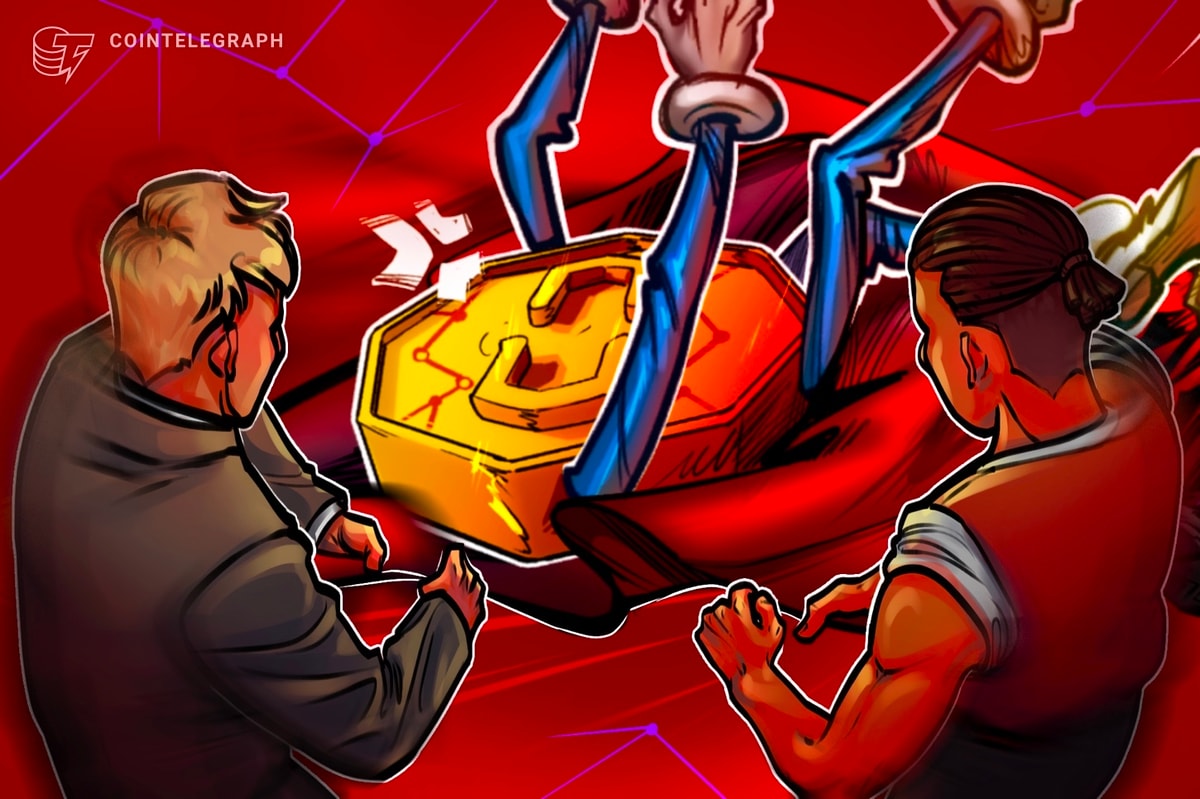The blockchain project launched by Neal Stephenson, who coined the term “metaverse” in his 1992 book, Snow Crash, is pushing forward with its vision despite waning interest in it and some declaring that it’s “dead.”
Compared with its peak in 2021 and 2022, search interest for the metaverse has declined in 2023, according to data from Google Trends. The declining interest in the metaverse has also led some to declare that the metaverse hype is dead.

Despite the waning interest and the declarations that it’s dead, some keep their heads down and build. In a statement, Lamina1 — the metaverse blockchain project founded by Stephenson — said it’s holding a month-long event in October called the Open Metaverse Discovery Month. The firm will hold workshops and provide joint quests and bounties to equip builders and creators with the knowledge to explore metaverse experiences.
Kicking off in just a few hours – #Unity/#UnrealEngine SDK + Open Metaverse Discovery Month AMA w/ @OpenMetaDAO.
— LAMINA1 (@Lamina1official) September 29, 2023
Join us to talk worldbuilding & what's next for the toolkit and our partnership.
More info at: https://t.co/Pmsqk7oqTe pic.twitter.com/ktaCQgkVEi
“We’re co-hosting two interactive workshops for Unity and Unreal Engine developers this month to begin diving in with the toolkit, as well as two Creator Competitions that will allow participants to have their art and experiences featured on our Lamina1 Hub platform,” the Lamina1 team said.
Related: Metaverse sneak peek: Project aims to build a creator-focused economy through blockchain
Rebecca Barkin, the CEO of Lamina1, remains optimistic in the metaverse despite assumptions that it’s dead. Barkin told Cointelegraph in a statement that despite the crypto winter and what many describe as the “death of the metaverse,” it was able to attract almost 50,000 builders into its community since it launched the project.
Barkin is optimistic that its founder’s vision of the metaverse will survive as long as people are willing to invest their time and money. The executive told Cointelegraph:
“As long as people continue to invest time and money in digital experiences, gaming and virtual worldbuilding, buying and selling digital items, and experimenting with new computing and creative technologies, the metaverse will continue to come to life.”
According to Barkin, Stephenson’s vision of the metaverse wasn’t just about building virtual worlds. The CEO said it’s about challenging “corporate greed and control.” She added that with today’s technology, it’s now possible to “give more autonomy to creators across entertainment, gaming, commerce, fashion and beyond to build, create and distribute these worlds on their own.”
Magazine: Web3 Gamer: Zuckerberg’s metaverse losses, NFT game on Discord, Gods Unchained hot take











